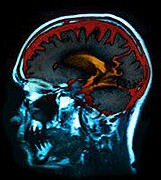
THURSDAY, Dec. 2 (HealthDay News) — Maintaining a healthy lifestyle can cut your risk for first-time stroke by 80 percent, according to new guidelines from the American Heart Association and the American Stroke Association.
Also, as more Americans use hospital emergency departments for primary health care, ER doctors are in a position to identify those at high risk for stroke, make referrals and begin preventive therapy, the guidelines point out.
The recommendations, updated for the first time since 2006, are published in the December issue of Stroke.
As the U.S. population ages and obesity increases, more strokes are occurring — 795,000 a year, 77 percent of them first-time — but deaths from stroke have decreased, experts say.
“There has been about a 30 percent decrease in stroke-related mortality,” said Dr. Larry B. Goldstein, director of the Duke Stroke Center in Durham, N.C., and lead guideline author.
“We think a good part of the reduction is due to improved prevention,” he said.
A healthy lifestyle, which includes not smoking, maintaining a healthy weight, exercising and eating a diet rich in fruits and vegetables, has the biggest impact on preventing stroke, Goldstein said.
“There is nothing we are going to do in medicine to beat that,” he said.
Keeping cholesterol and blood pressure low are also important for reducing stroke risk, Goldstein added.
The guideline authors address the whole stroke spectrum: ischemic stroke, which involves a blocked blood vessel in the brain; non-ischemic (hemorrhagic) stroke, in which a ruptured vessel bleeds in the brain; and transient ischemic attack (TIA), a temporary stroke that can be an indicator of risk for a more serious stroke.
Prevention of each type of stroke is basically the same, Goldstein stated. “People need to take charge of their own lives,” he said. “The best way to treat a stroke is never to have one.”
Other prevention-related information included in the guidelines:
- Genetic screening for stroke may be appropriate for some at-risk patients, but not for the general public.
- Treating patients with a blocked neck artery (carotid artery) with a stent or surgery (endarterectomy) should be decided on a case-by-case basis.
- Screening for narrowing of the neck arteries is not recommended.
- Aspirin is advised only for people at high risk of stroke for whom the reduction in stroke risk outweighs the bleeding risk of aspirin.
Stroke is the third leading cause of death in the United States after heart disease and cancer, and a major cause of disability.
Dr. Ralph L. Sacco, professor and chairman of neurology at the University of Miami Miller School of Medicine and president of the American Heart Association, agrees with the emphasis on healthy lifestyles for preventing both heart disease and stroke.
“The heart association is focusing on what we call ‘Life’s Simple 7,'” he said. “The seven key health factors that can improve people’s health.”
These include controlling blood pressure, blood sugar and cholesterol, in addition to exercising, eating healthfully, not smoking and maintaining a healthy weight, he said.
“We, as Americans, need to take control of our health,” Sacco said.
More information
For more information on stroke, visit the U.S. National Library of Medicine.

